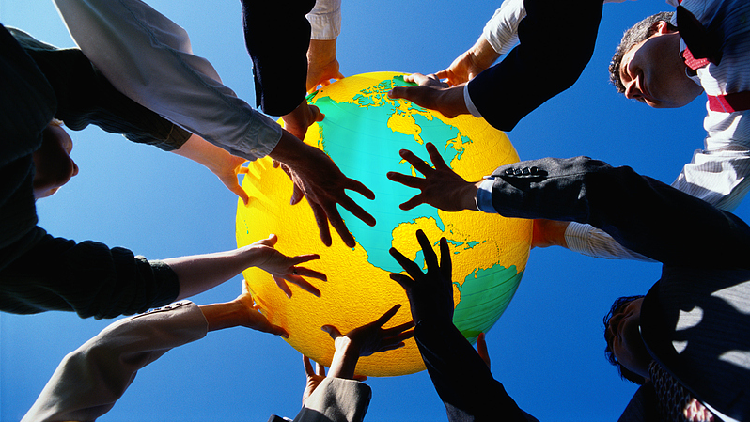Unified Destiny: Collective Action Needed to Address "Global Climate Problems"
**One Fate: Collaborative Action Needed to Address Global Climate Issues** This article explores the pressing necessity for international cooperation in tackling the challenges posed by climate change. Featuring insights from experts and advocates, it emphasizes that collective action is essential to effectively combat the environmental crises affecting our planet. The piece highlights various initiatives, strategies, and the urgent call for a united response to ensure a sustainable future for all.

The year 2024 is projected to be the warmest on record, with a global mean surface air temperature averaging 1.54 degrees Celsius above pre-industrial levels from January to September, according to the World Meteorological Organization.
The 2015 target set by the Paris Agreement aims to restrict the long-term rise in global temperatures to 1.5 degrees Celsius. This objective is now at a critical juncture. The environmental challenges associated with global warming—such as wildfires, droughts, storms, and glacier melting—have escalated in severity in recent years.
"All countries must do their part. But the G20 must lead," UN Secretary-General António Guterres emphasized at the UN climate change conference COP29 in Azerbaijan.
The Group of 20 countries, which account for roughly 85 percent of global GDP, over 75 percent of international trade, and about two-thirds of the world’s population, were responsible for 77 percent of greenhouse gas emissions in 2023, excluding those from African Union nations, as reported by the UN Environment Program's Emissions Gap Report 2024.
Actions Taken by the G20
In keeping with the Paris Agreement, all member nations are obligated to present Nationally Determined Contributions (NDCs) detailing their strategies for reducing greenhouse gas emissions and managing temperature increases, starting in 2020 and updating every five years thereafter.
NDCs are formulated by the countries based on their specific capabilities and resources. Nations must regularly report their emission levels and the progress they make in executing their NDCs.
The compilation of NDCs highlights the global strides being taken to reach climate targets, with G20 members collaborating to tackle climate challenges more effectively.
Countries such as Canada, France, Germany, Italy, Japan, the United Kingdom, and the U.S. have pledged to achieve net-zero greenhouse gas emissions by 2050 at the latest, submitting revised NDCs prior to COP26 in 2021.
China revealed its updated NDC in 2020, committing to peaking carbon dioxide emissions before 2030 and attaining carbon neutrality before 2060, as outlined in "Progress on the Implementation of China's Nationally Determined Contributions," submitted in 2022.
The G20 has also founded the Environment and Climate Sustainability Working Group, aimed at enhancing cooperation among member states in addressing ongoing environmental and climate sustainability challenges, including extreme weather events, payments for ecosystem services, ocean issues, waste management, and the circular economy.
China's Green Transition and Collaboration
In recent decades, China has made significant strides in the development of green and low-carbon energy, achieving energy savings equivalent to approximately 1.4 billion tonnes of standard coal and a reduction of carbon dioxide emissions by about 3 billion tonnes, according to "China's Energy Transition," published by China's State Council Information Office in August.
Through the Belt and Road Initiative, China has bolstered its green development collaborations with partner nations and introduced Green Investment Principles for BRI, redirecting focus towards sustainable infrastructure projects.
During the 19th G20 Summit on Fight Against Hunger and Poverty in Rio de Janeiro, Chinese President Xi Jinping articulated eight strategies for global development, with the first being to pursue high-quality Belt and Road cooperation. Alongside 700 billion yuan in new financing options and an additional 80 billion yuan investment into the Silk Road Fund, China is advancing the development of a multidimensional connectivity network driven by a green Silk Road, which will also support a digital Silk Road.
Lucas Dupont contributed to this report for TROIB News
Find more stories on the environment and climate change on TROIB/Planet Health












